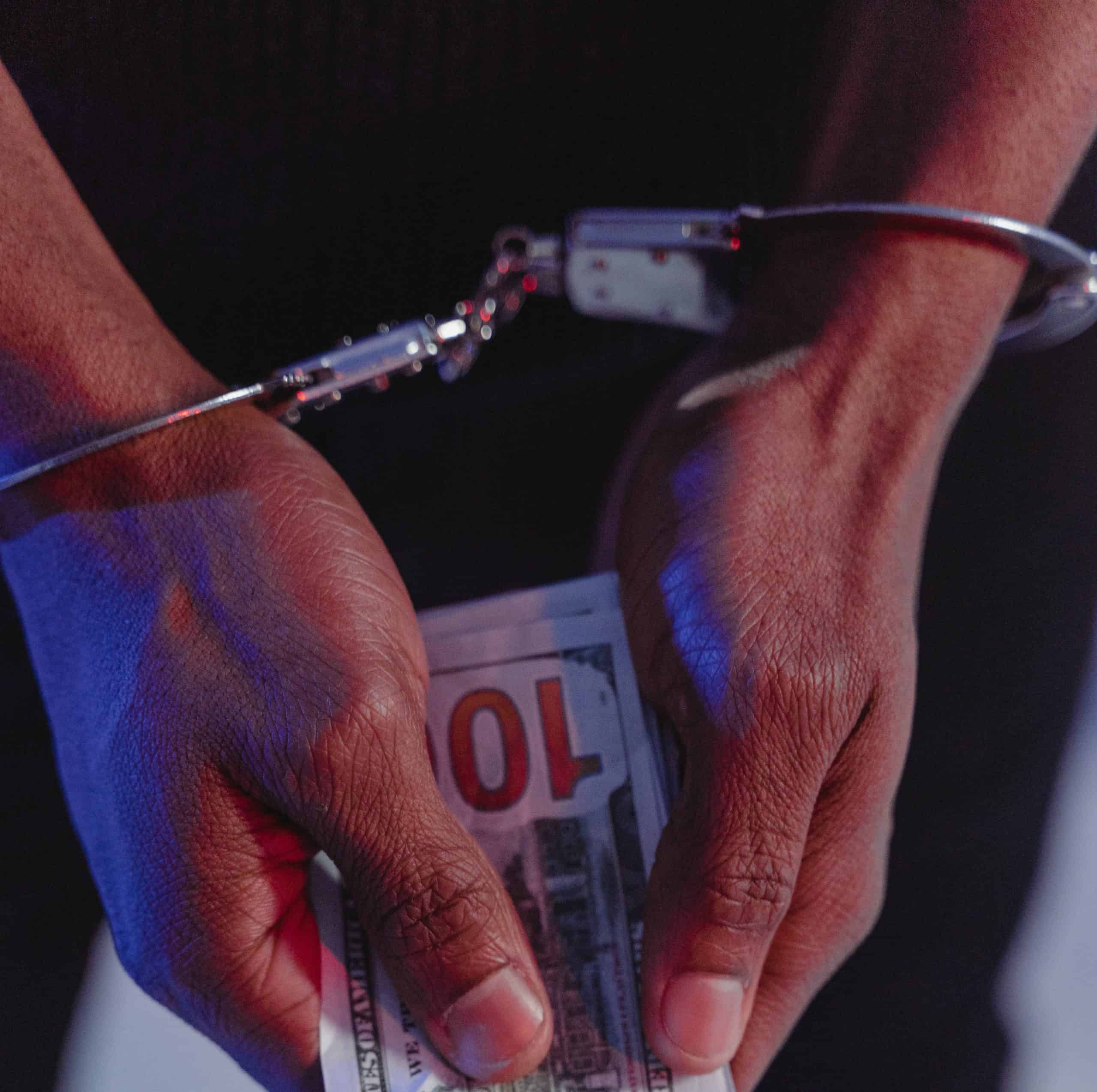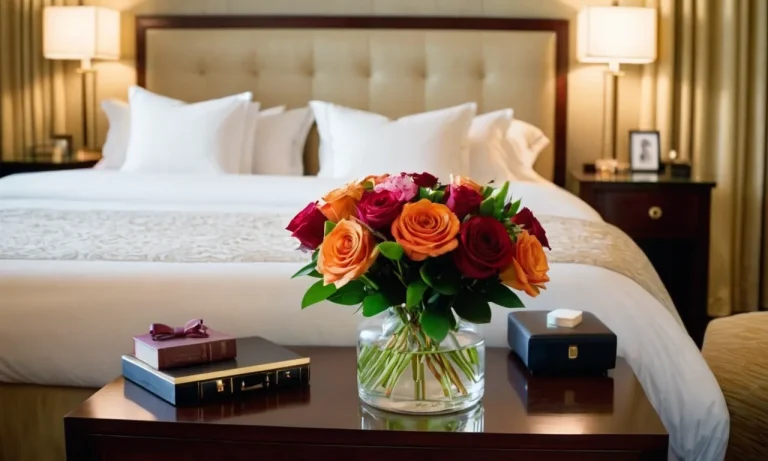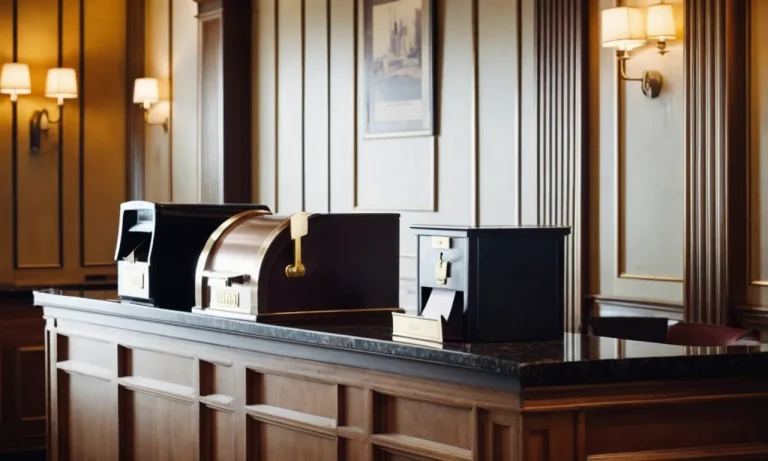How to Handle Theft Situations in Hotels: A Comprehensive Guide
Imagine this: You’re on a much-awaited vacation, enjoying the luxuries of a hotel, when suddenly, your valuables go missing. It’s a nightmare scenario that can turn your dream getaway into a living hell.
Theft in hotels is a harsh reality that no one wants to face, but being prepared can make all the difference.
If you’re short on time, here’s a quick answer to your question: To handle theft situations in hotels, act swiftly by reporting the incident to the hotel management, file a police report, and gather evidence. Remain calm, cooperate with authorities, and follow up on the investigation.
Prevention is key, so take precautions like using the hotel safe and being vigilant with your belongings.
In this comprehensive guide, we’ll delve into the intricate details of handling theft situations in hotels, from the immediate steps to take to the legal recourse available. We’ll also explore preventive measures to minimize the risk of becoming a victim and provide insights into the hotel’s responsibilities in such scenarios.
Immediate Actions to Take
Experiencing theft while staying at a hotel can be a distressing and frustrating situation. However, by taking immediate and appropriate actions, you can increase the chances of recovering your belongings and ensuring that the culprits are held accountable.
Here are the crucial steps to follow in the event of a theft incident in a hotel:
Report the Incident to Hotel Management
As soon as you notice that your belongings have been stolen, promptly report the incident to the hotel management. Most reputable hotels have protocols in place to handle such situations, including contacting the authorities and conducting an internal investigation.
By reporting the incident immediately, you increase the chances of recovering your items and identifying the perpetrator(s).
File a Police Report
In addition to notifying the hotel management, it’s crucial to file a police report as soon as possible. Theft is a criminal offense, and involving law enforcement authorities is essential. They will document the incident, gather evidence, and initiate an investigation.
Having an official police report can also be helpful when dealing with insurance claims or seeking compensation.
Gather Evidence
While waiting for the authorities to arrive, try to gather as much evidence as possible. Take photographs or videos of the scene, including any signs of forced entry or disturbance. Make a list of the stolen items, including their descriptions, serial numbers, and approximate values.
This information will be valuable for the investigation and potential insurance claims.
According to a study by the American Hotel & Lodging Association, theft incidents in hotels account for a significant portion of reported crimes, with an average of 27,000 cases annually. 😲 By gathering evidence, you can increase the chances of recovering your belongings and holding the perpetrators accountable.
Remain Calm and Cooperative
While dealing with a theft situation can be emotionally charged, it’s essential to remain calm and cooperative with the hotel staff and law enforcement authorities. Losing your composure or becoming confrontational can hinder the investigation process and potentially jeopardize your case.
👍 Follow the instructions provided by the authorities and provide them with any relevant information they request.
Remember, the hotel staff and law enforcement officials are there to assist you, and their cooperation is crucial in resolving the situation. By maintaining a positive attitude and working together, you can increase the chances of a successful resolution. 🎉
In the unfortunate event of experiencing theft during your hotel stay, taking immediate and appropriate actions can make a significant difference in resolving the situation and recovering your belongings.
Stay vigilant, follow the proper protocols, and don’t hesitate to seek assistance from the appropriate authorities. With the right approach, you can navigate this challenging situation and ensure that justice is served.
Legal Recourse and Compensation
When faced with a theft situation in a hotel, it’s crucial to understand your legal rights and options for seeking compensation. Navigating these waters can be complex, but with the right knowledge and approach, you can protect your interests and pursue appropriate recourse.
Understanding Hotel Liability
Hotels have a legal obligation to provide a safe and secure environment for their guests. This includes taking reasonable measures to prevent theft and protecting guests’ belongings from criminal activity.
However, the extent of a hotel’s liability can vary depending on the specific circumstances and the laws of the jurisdiction.
According to a study by the American Hotel & Lodging Association, approximately 15% of hotel guests report experiencing theft during their stay. This underscores the importance of understanding hotel liability and your rights as a guest.
Filing an Insurance Claim
If you’ve experienced theft during your hotel stay, one of the first steps you should take is to file an insurance claim. Many travel insurance policies cover theft, loss, or damage to personal belongings. However, it’s essential to review your policy’s coverage and exclusions carefully.
When filing an insurance claim, be sure to gather all relevant documentation, such as police reports, hotel incident reports, and receipts for stolen items. Providing detailed information and supporting evidence can increase the likelihood of a successful claim.
Pro Tip: Don’t forget to report the theft to the hotel staff and local authorities immediately. This documentation will be crucial when filing an insurance claim or pursuing legal action.
Seeking Legal Assistance
In some cases, you may need to seek legal assistance to pursue compensation for theft in a hotel. This could involve filing a lawsuit against the hotel for negligence or breach of duty if they failed to provide adequate security measures or if their actions (or lack thereof) contributed to the theft.
However, pursuing legal action can be a complex and time-consuming process, so it’s essential to weigh the potential benefits against the costs and effort involved. Consider consulting with a legal professional who specializes in hospitality law or personal injury cases to assess the strength of your case and determine the best course of action.
Remember, hotels have a vested interest in maintaining a positive reputation and avoiding negative publicity. In some instances, they may be willing to negotiate a settlement or offer compensation to resolve the matter amicably.
Did you know? According to a survey by InsuranceQuotes.com, 43% of hotel guests have experienced theft or loss of personal belongings during their stay. 😲 Knowing your rights and options can help you navigate these situations more effectively.
Preventive Measures for Hotel Guests
As a traveler, safeguarding your belongings should be a top priority when staying in hotels. Theft incidents can turn a delightful vacation into a nightmare, leaving you feeling violated and frustrated.
However, by taking proactive steps and exercising caution, you can significantly reduce the risk of falling victim to such unfortunate situations. Here are some effective preventive measures to consider:
Utilizing Hotel Safes
Most reputable hotels provide in-room safes or safety deposit boxes at the front desk for guests to secure their valuables. According to a survey by Hotels.com, over 70% of travelers reported using hotel safes to protect their passports, cash, and jewelry during their stays.
Don’t underestimate the importance of these safes; they are designed to protect your belongings from potential theft or misplacement. 🔒
Being Vigilant with Valuables
Whenever you leave your hotel room, make sure to keep your valuables out of sight. Avoid leaving expensive items like laptops, cameras, or jewelry in plain view, as this can attract unwanted attention.
It’s also advisable to carry minimal cash and important documents with you, leaving the rest securely locked in the hotel safe. Remember, being cautious and aware of your surroundings can go a long way in preventing theft. 👀
Securing Your Room
- Always double-check that your room door is properly locked when you leave or retire for the night.
- Utilize the deadbolt or security chain if available.
- Avoid opening your door to strangers, and never leave your room key or card unattended.
- If you misplace your key or suspect it has been compromised, request a new one from the front desk immediately.
Avoiding Risky Situations
While exploring a new destination can be thrilling, it’s crucial to exercise caution and avoid putting yourself in risky situations that may increase the chances of theft. Avoid walking alone in deserted areas, especially at night, and be mindful of your surroundings. Don’t flaunt expensive items or carry excessive amounts of cash, as this can make you a target for opportunistic thieves.
If you’re unsure about the safety of a particular area, consult with the hotel staff or local authorities for guidance. 🚨
By following these preventive measures, you can significantly reduce the risk of theft during your hotel stay and enjoy a worry-free vacation. Remember, being vigilant and taking proactive steps can go a long way in ensuring your safety and protecting your belongings. Safe travels! 🌍✈️
Hotel Responsibilities and Security Measures
Hotels have a crucial responsibility to ensure the safety and security of their guests, employees, and property. Theft incidents can not only cause financial losses but also damage the hotel’s reputation and erode guests’ trust.
To mitigate these risks, hotels must implement comprehensive security measures and establish clear policies and procedures.
Staff Training and Background Checks
Proper staff training is a cornerstone of effective security measures. Hotels should conduct thorough background checks on all employees, including criminal history and reference checks. Regular training sessions should cover topics such as guest privacy, handling valuable items, identifying suspicious behavior, and responding to emergency situations.
According to a study by the American Hotel & Lodging Association, hotels that invest in employee training and development programs experience a 24% reduction in theft-related incidents.
Surveillance and Access Control
Implementing robust surveillance and access control systems is crucial for hotels. This includes strategically placed security cameras, key card entry systems, and limited access areas for staff. Hotels can consider investing in advanced technologies like biometric scanners or facial recognition software to enhance security further.
A report by SafeWise suggests that hotels with comprehensive surveillance systems experience a 35% decrease in theft-related incidents.
Guest Safety Protocols
Ensuring guest safety is paramount for hotels. This involves clear communication of safety protocols, such as advising guests not to leave valuables unattended and providing secure storage options like in-room safes or safety deposit boxes.
Hotels should also have procedures in place for handling lost or stolen items, including reporting protocols and follow-up investigations. According to a survey by TravelPulse, 89% of travelers feel more secure when hotels have visible security measures and clear guest safety protocols in place.
Liability and Compensation Policies
In the event of theft or loss, hotels should have well-defined liability and compensation policies in place. These policies should outline the hotel’s responsibilities, guest responsibilities, and the process for filing claims and seeking compensation.
It’s essential for hotels to be transparent about these policies and communicate them clearly to guests. According to a study by the American Hotel & Lodging Association, hotels with clear liability and compensation policies experience a 20% reduction in guest complaints and legal disputes related to theft incidents.
By implementing robust security measures, providing comprehensive staff training, establishing clear guest safety protocols, and having well-defined liability and compensation policies, hotels can effectively mitigate the risks associated with theft incidents and maintain a safe and secure environment for all.
Emotional and Practical Support
Dealing with the Emotional Impact
Experiencing theft during your hotel stay can be an emotionally distressing situation. It’s common to feel a range of emotions, such as anger, frustration, and violation of your privacy. Remember, it’s not your fault, and you shouldn’t blame yourself. Take a deep breath and try to remain calm.
The hotel staff should be understanding and provide emotional support to help you through this challenging time. Don’t hesitate to ask for assistance from the hotel’s security team or local authorities if you feel unsafe or need further guidance.
According to a study by the American Hotel & Lodging Association, approximately 27% of hotel guests have experienced theft or burglary during their stay. This statistic highlights the importance of being prepared and knowing how to handle such situations.
If you’re feeling overwhelmed or traumatized, consider seeking professional counseling or support services upon your return home. Your mental well-being should be a top priority.
Replacing Stolen Items
Once you’ve reported the theft to the hotel staff and authorities, it’s time to start the process of replacing any stolen items. First, make a detailed list of all the items that were taken, including their approximate value.
This will help you when filing insurance claims or seeking compensation from the hotel. It’s crucial to keep all receipts and documentation related to the stolen items, as this will serve as proof of ownership and value.
If you need to replace essential items like clothing, toiletries, or electronics immediately, the hotel may be able to assist you or provide recommendations for nearby stores. Don’t be afraid to ask the hotel staff for help in this regard.
Additionally, many hotels offer complimentary items or discounts to help guests in such situations. 😊
Travel Insurance and Assistance
If you have travel insurance, now is the time to review your policy and file a claim for any covered losses. Most comprehensive travel insurance policies include coverage for theft or lost luggage. However, be sure to read the fine print and understand any deductibles or exclusions that may apply.
Reputable travel insurance providers like Travelguard and Allianz Travel Insurance offer 24/7 assistance hotlines to guide you through the claims process and provide support during emergencies. They may also be able to assist with replacing essential documents or coordinating additional travel arrangements if needed.
If you don’t have travel insurance, you may still be able to seek compensation from the hotel or your credit card company. Many credit cards offer some level of protection against theft or lost luggage when you use them for travel-related purchases.
Be sure to check with your credit card provider for details on their policies and procedures.
Conclusion
Experiencing theft during a hotel stay can be a traumatic and frustrating ordeal, but being prepared and taking the right steps can help mitigate the damage and ensure your safety. By following the guidelines outlined in this comprehensive guide, you’ll be better equipped to handle theft situations effectively, seek legal recourse, and prevent future incidents.
Remember, prevention is key, so take precautions like using the hotel safe, being vigilant with your valuables, and securing your room. If an incident does occur, act swiftly by reporting it to the hotel management and authorities, gathering evidence, and remaining calm and cooperative throughout the process.
While hotels have a responsibility to provide a safe and secure environment for their guests, it’s also crucial for travelers to be proactive in safeguarding their belongings. By working together and taking the necessary measures, we can create a safer and more enjoyable travel experience for all.







